Moringa Oleifera
Moringa, originally from India, is starting to gain worldwide recognition as a superfood due to its high concentration of nutrients. Moringa Oleifera is edible in all its forms, from fruit to seeds, roots and leaves. These are mainly processed into powder without compromising the high nutritional value and medicinal properties.
Moringa is an important source of protein, minerals and vitamins and is used to combat malnutrition in Africa and India. Consumption of Moringa is particularly recommended for health balance.
This superfood, which is very rich in nutrients, is distinguished by its many health benefits; it is also an excellent natural medicine capable of treating many ailments and has been used for years in traditional medicine.
The Moringa tree is also known as the Tree of Life or the Miracle Tree with its incredible and numerous properties!

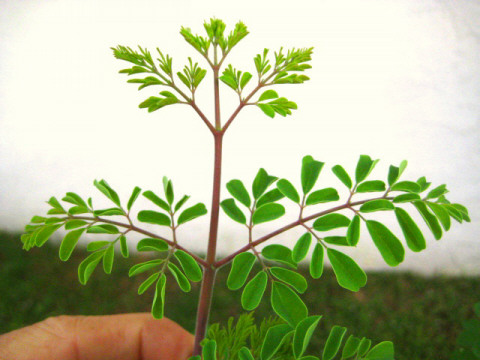
The plant
Moringa (Moringa Oleifera) is a small tree (maximum 3m), grows relatively quickly, loses its leaves and is very drought tolerant. Almost everything from the Moringa plant is edible, from the fruit to the seeds, roots and leaves.
Moringa powder
The leaves of the Moringa Oleifera are harvested from the trees and sorted, washed and dried on the same day. They are then finely ground to produce Moringa powder.
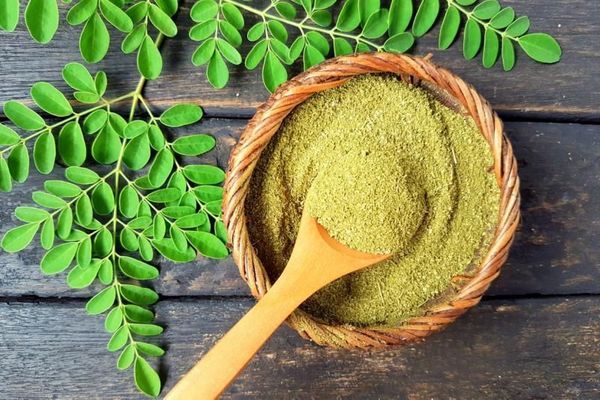
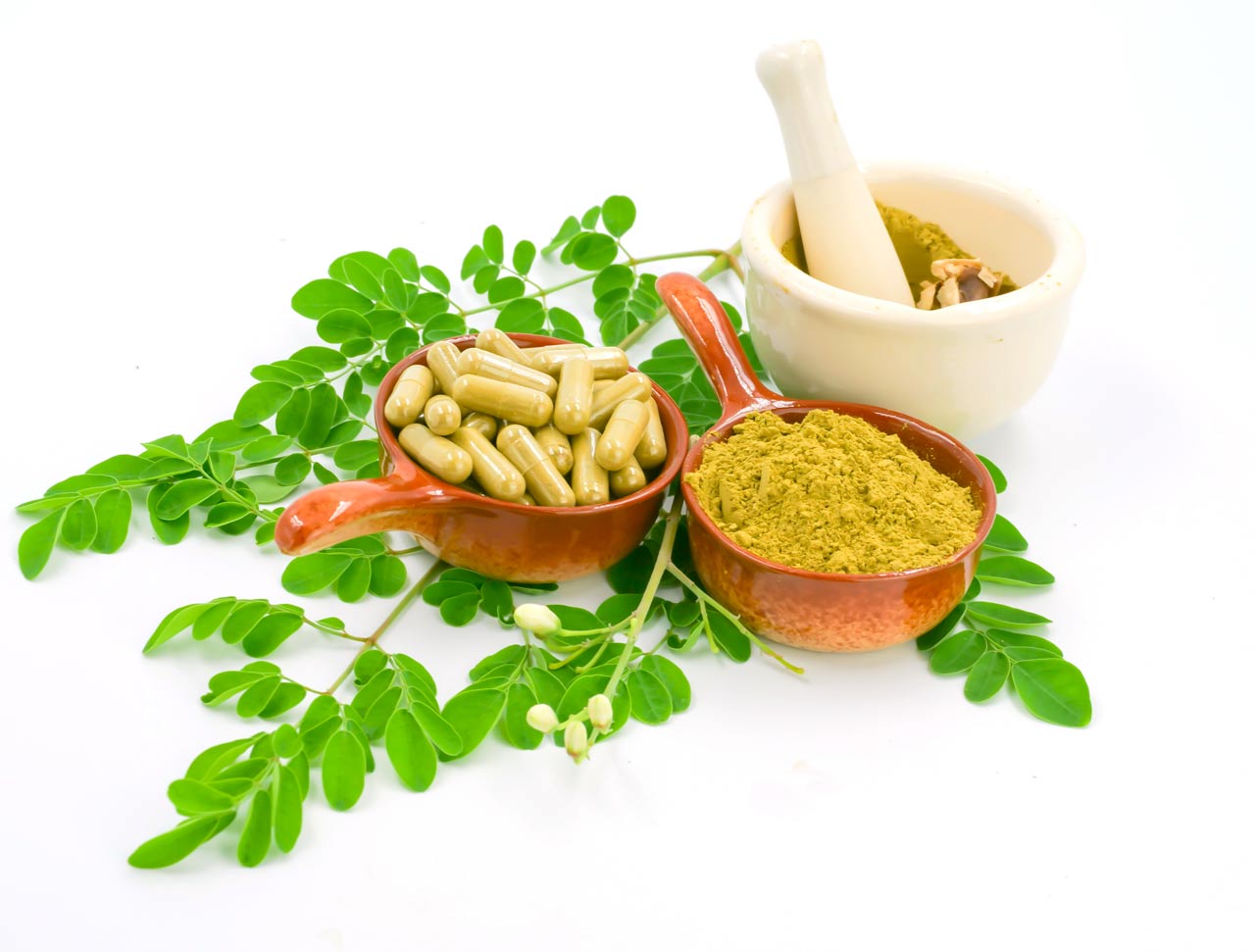
Properties
Moringa powder contains large amounts of amino acids, essential for protein absorption. Moringa is used to treat infections, swelling, stomach pain, asthma and epilepsy. It is also an energy booster, immunostimulant, promotes cardiovascular health and detoxifies.
The use of Moringa powder
- helps to solve high blood pressure and inflammation problems
- is a pure antioxidant
- is an ally against diabetes symptoms
- is an excellent intellectual stimulant
- stimulates digestion
- improves the immune system
- promotes good digestion (bloating, indigestion, abdominal pain, bowel movement, tiredness after meals, etc.).
- relieves pain, fights fatigue, preserves muscle mass, strengthens joints
Suggestions
Moringa powder is very pleasant to take in smoothies or in fruit or vegetable juices. For example, moringa powder goes well with apple juice.
Moringa powder can be used at any time to flavour dishes. For that extra healthy touch to salads, breakfast cereals, yoghurts, smoothies,… To keep all the valuable properties, do not boil the powder.
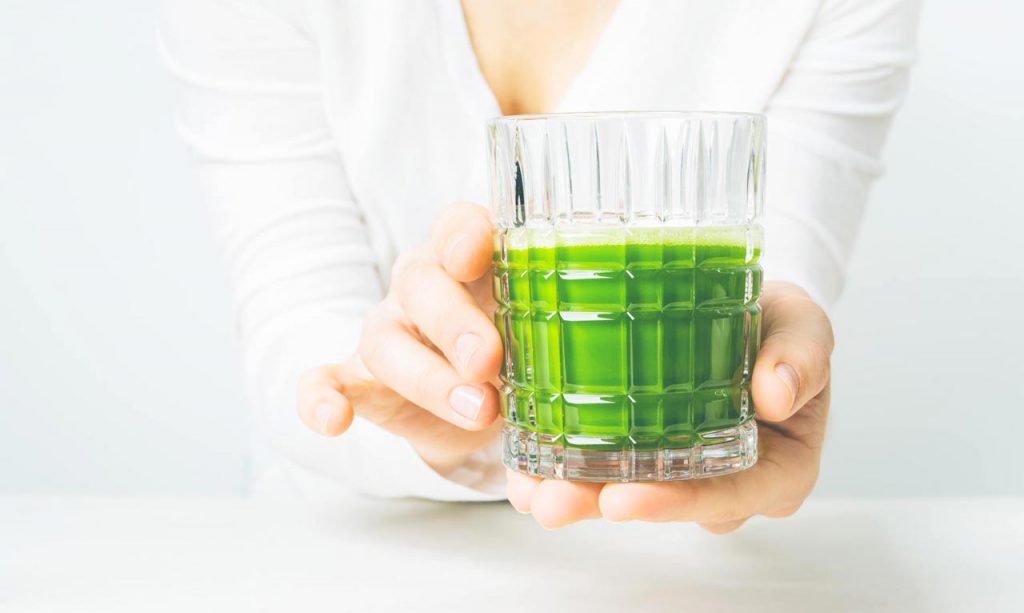
Moringa against fatigue
• VITAMIN E OR TOCOPHÉROL
We need 10 to 15 mg of vitamin E every day. Vitamin E acts as a powerful antioxidant and thus protects cells, blood vessels (which would have a preventive effect on heart and vascular diseases), organs, eyes and tissue. Vitamin E also plays a role in regulating cell metabolism. Vitamin E is stored in numerous tissues in the body and the liver contains considerable reserves of this vitamin.
• VITAMIN B2
We need 1.5 mg of vitamin B2 daily for the energy supply of the body. Vitamin B2 is essential for the metabolism of carbohydrates, fats and proteins and helps to release energy from food. It affects eye health, our skin and our immune system. It is found in all foods. It is one of the most common vitamins found in nature.
• VITAMIN A OR RÉTINOL
We need 0.75 to 0.90 mg of vitamin A every day. Vitamin A or retinol is important for normal growth, healthy skin, hair and nails and proper functioning of the eyes and immune system. It is an anti-fatigue, anti-infective vitamin.
• VITAMIN C
We need 110 mg of Vitamin C every day. Vitamin C is the best known vitamin. Vitamin C acts as an antioxidant in the body and is needed for the formation of connective tissue essential for wound healing, iron absorption and maintaining resistance.
• POTASSIUM
Our potassium requirement is 3500 mg per day. Potassium is a mineral salt found in each of the body’s cells. It regulates the fluid balance of the body. It is essential for the proper functioning of the nervous system and muscles. Potassium is also good for the heartbeat and essential for the proper functioning of blood pressure fluctuations.
• MAGNESIUM
We need 360 mg to 420 mg of magnesium every day. Magnesium is a mineral that is needed for the formation of bone and muscles, among other things. It helps to regulate carbohydrates in the blood, it has a preventive effect on type 2 diabetes because it activates certain hormones such as insulin. Along with vitamin D and calcium, it will also act on osteoporosis.
• CALCIUM
Our calcium requirement is 900 mg 1200 mg per day. Calcium is a mineral required for building and maintaining bones and teeth. Calcium helps to prevent osteoporosis in later life and ensures proper functioning of nerves and muscles, blood clotting and transport of other minerals in the body.

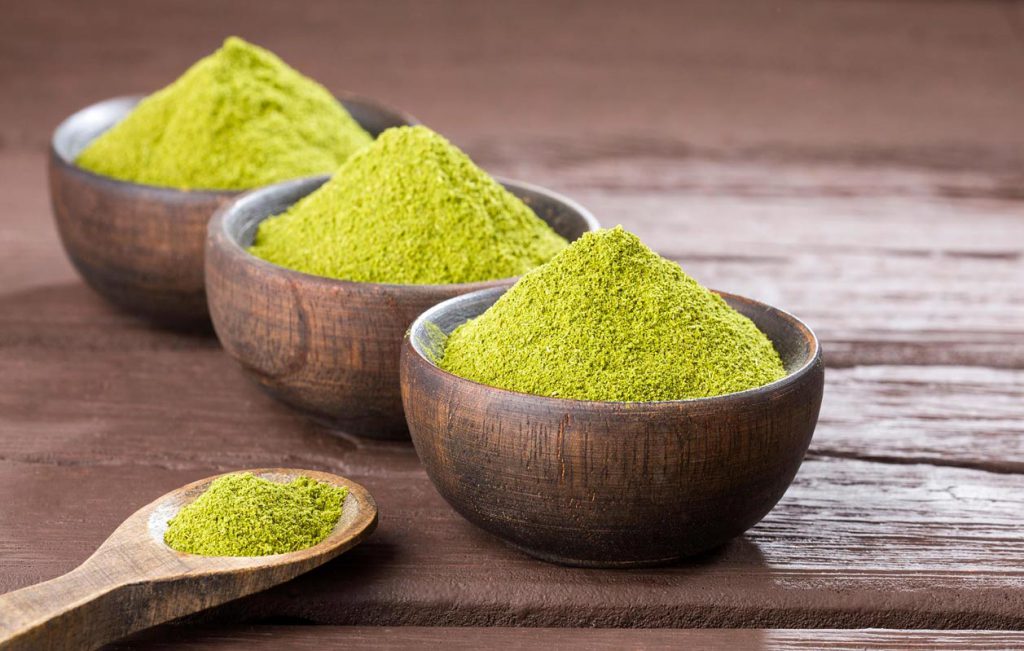
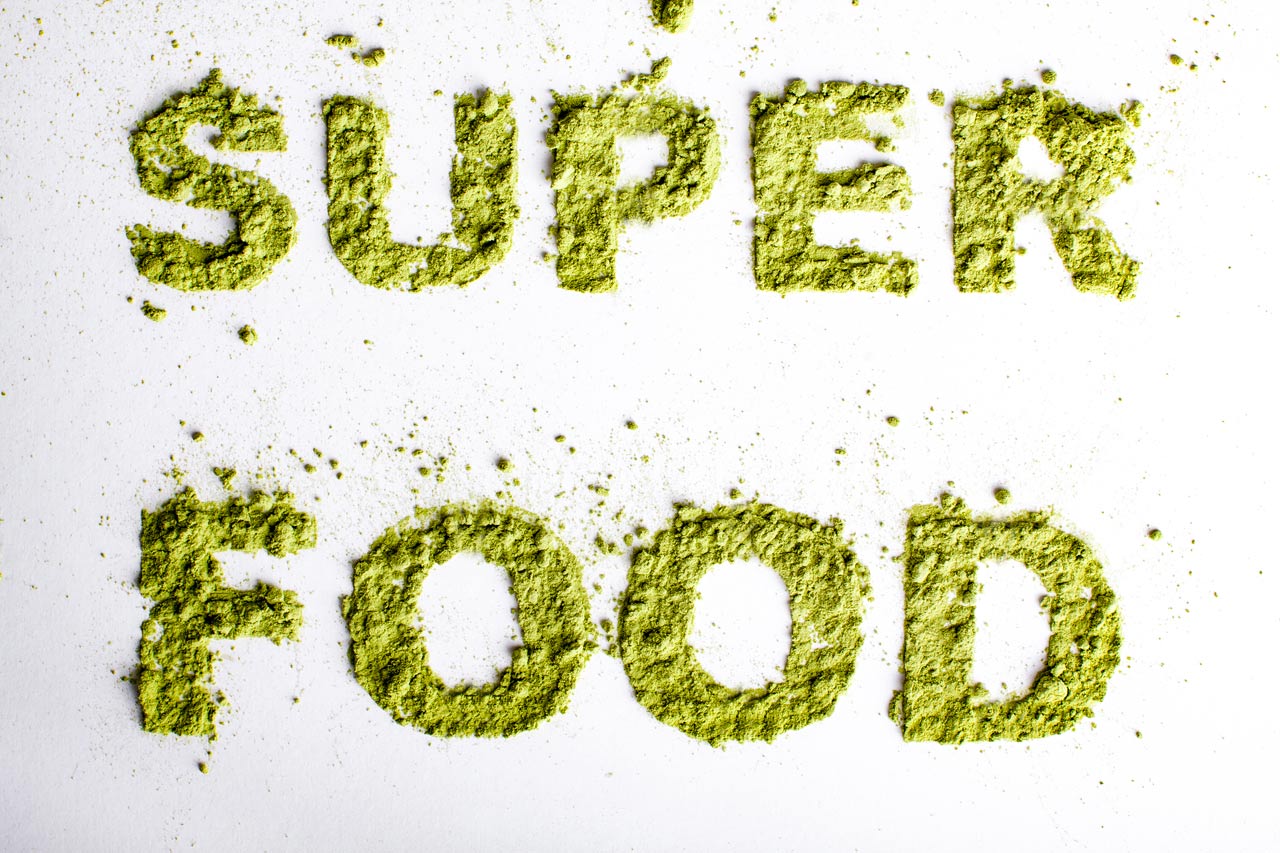
Superfood
When it comes to superfoods, Moringa is a champion. It is a natural vitamin bomb. And that is no coincidence, for Moringa powder is very rich in vitamins A and C, iron, potassium and protein. It is richer in protein, vitamins and minerals than most vegetables.
Moringa and particularly the leaf powder offers a concentrated nutritional cocktail of carbohydrates, protein, fibre, calcium, copper, iron, potassium, magnesium, phosphorus, selenium, zinc, vitamins A, B1, B2, B3, C, E….
- 7 vitamins
- 6 minerals
- 20 amino acids
- 46 antioxidants
In short, with its 90 nutrients, 4 antioxidants, 36 anti-inflammatory agents and more, Moringa powder has proven to be the most nutritionally and enzymatically active plant. This superfood is also an extremely powerful antioxidant and a great ally in the prevention of various chronic diseases such as cardiovascular disease, diabetes,….
